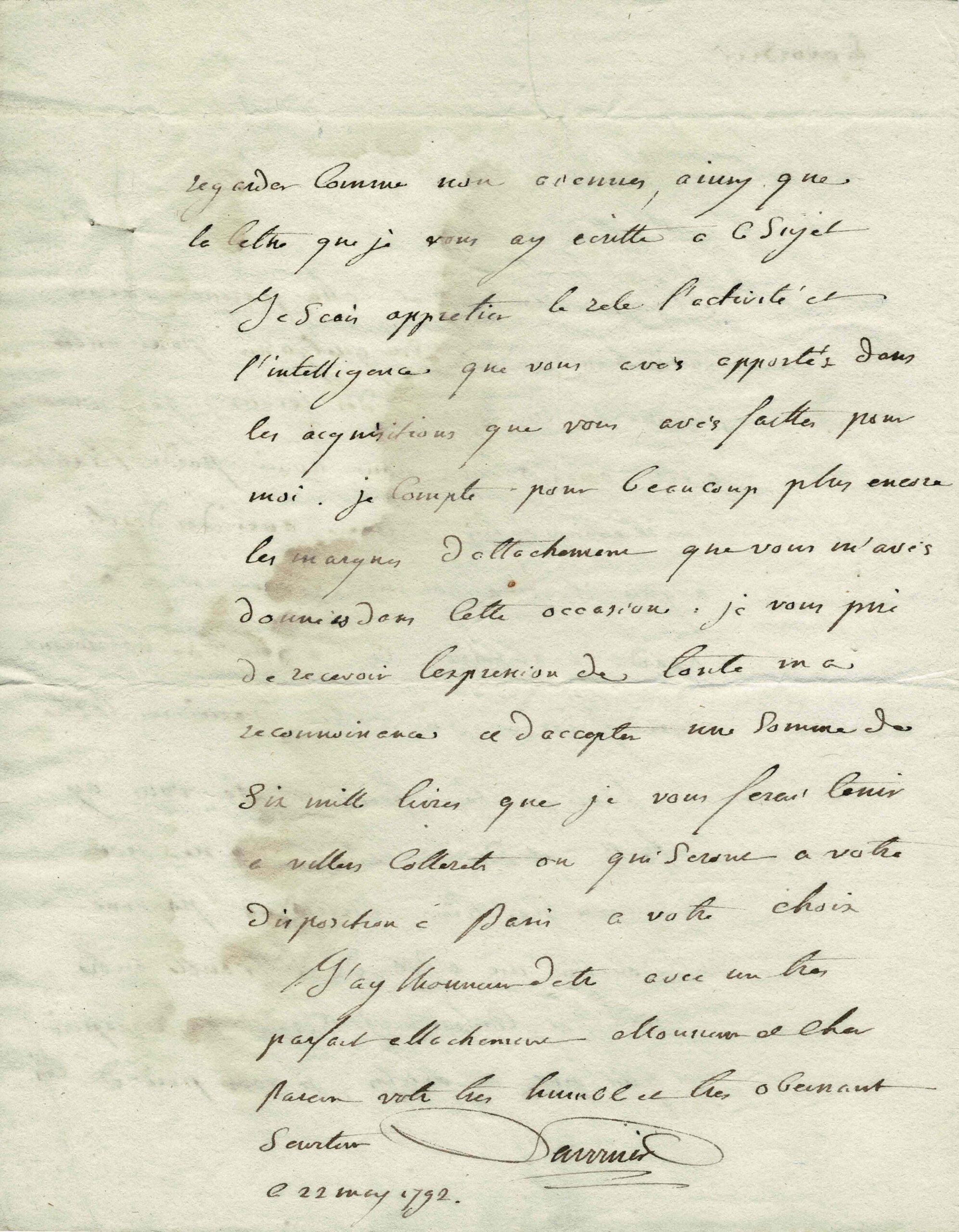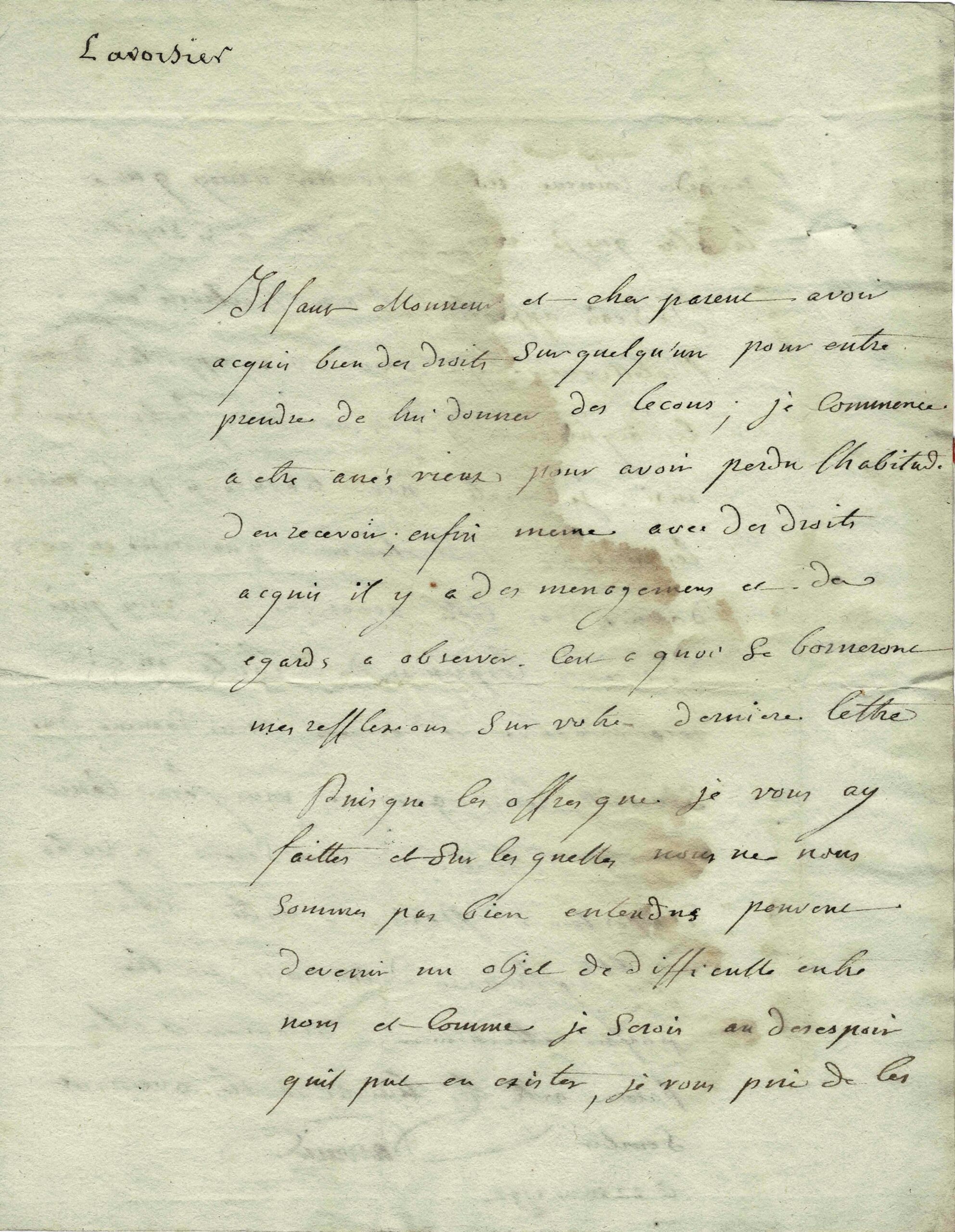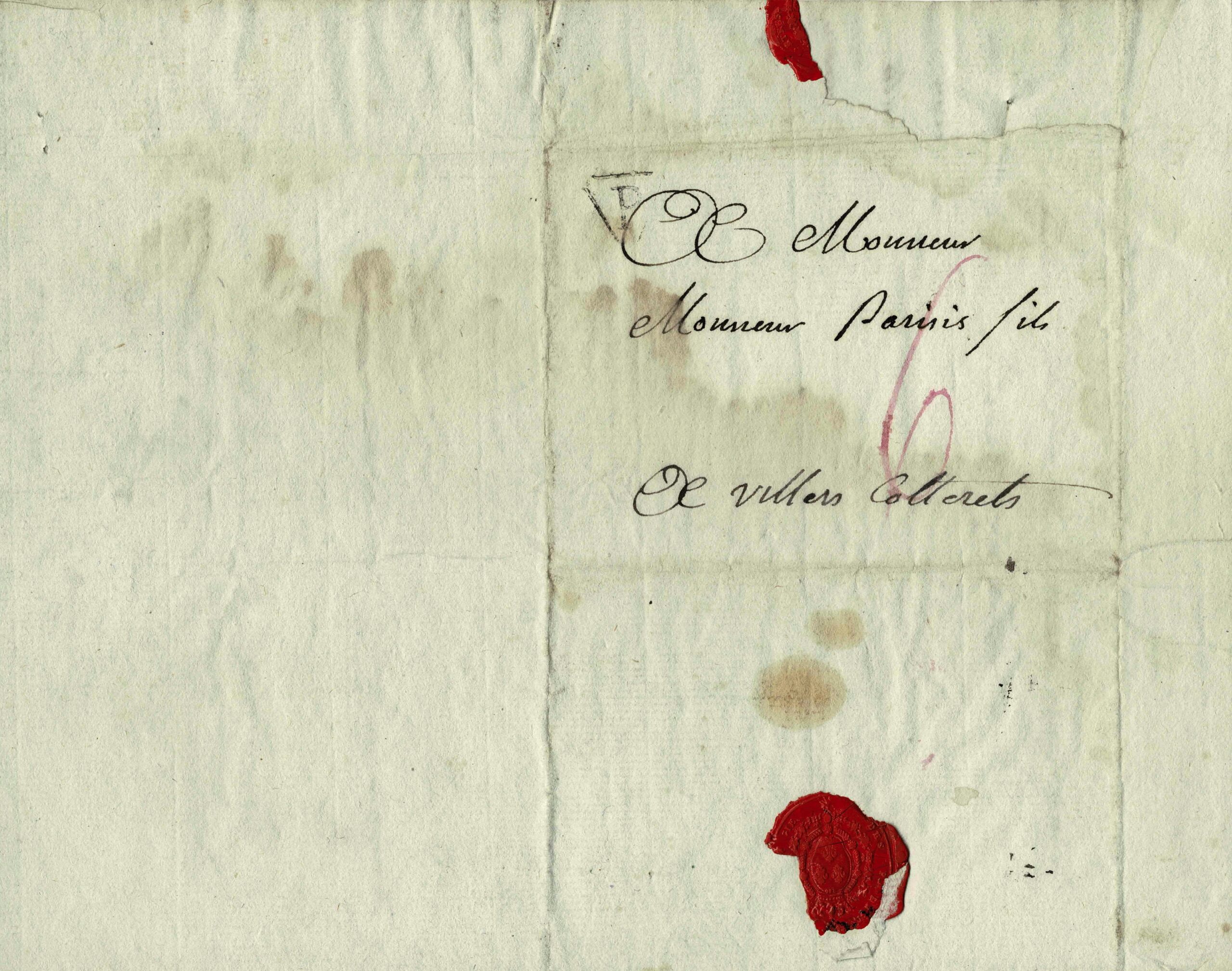Antoine LAVOISIER (1743-1794)
Autograph letter signed to his cousin Charles-Nicolas Parisis.
Two pages in-8°. Watermarks and wax seal on the 4th leaf .
No place, May 22, 1792.
Beautiful letter from the French chemist firmly settling a point of contention with his cousin over his acquisitions as a general farmer.
_________________________________
“ It is necessary, Sir and dear parent, to have acquired many rights over someone to undertake to give them lessons ; I am starting to be old enough to have lost the habit of receiving them; finally, even with acquired rights, there are precautions and considerations to be observed. This is what my thoughts on your last letter will be limited to. Since the offers that I made to you and on which we did not agree well could become an object of difficulty between us and as I would be in despair if any could exist, I ask you to consider them as void, thus than the letter I wrote to you on this subject. I know how to appreciate the zeal, activity and intelligence that you brought to the acquisitions that you made for me. I count for much more the marks of attachment that you gave me on this occasion. Please accept the expression of all my gratitude and accept a sum of six thousand pounds which I will have for you in Villers-Cotterêts or which will be at your disposal in Paris at your choice. I have the honor to be, with very perfect attachment, Sir and dear parent, your very humble and very obedient servant. Lavoisier. »
_________________________________
In the years 1791-1792, after the Revolution, the assembly decided to sell national property to individuals in order to replenish the state coffers. Sales are made by auction with possible payment over twelve annuities. Lavoisier thus strove to enrich his domains and acquire new lands and farms. It was his cousin from Villers-Cotterêts, Charles-Nicolas Parisis – recipient of this letter – who was charged by Lavoisier with these purchases. In total, Lavoisier acquired more than a thousand hectares of farms around his family's native village.
Denounced to the revolutionary authorities as a traitor to the nation, accused of having speculated against the interests of French citizens, he was incarcerated on November 28, 1793 in the Port Libre prison. Sentenced to death, he was guillotined on 19 Floréal Year II (May 8, 1794), Place de la Révolution.
The day after Lavoisier's execution, the mathematician Louis de Lagrange wrote: "It only took them a moment to make this head fall and a hundred years, perhaps, will not be enough to reproduce one like it"
Lavoisier. Eric Jacques. Ed. Ellipses. 2019.



